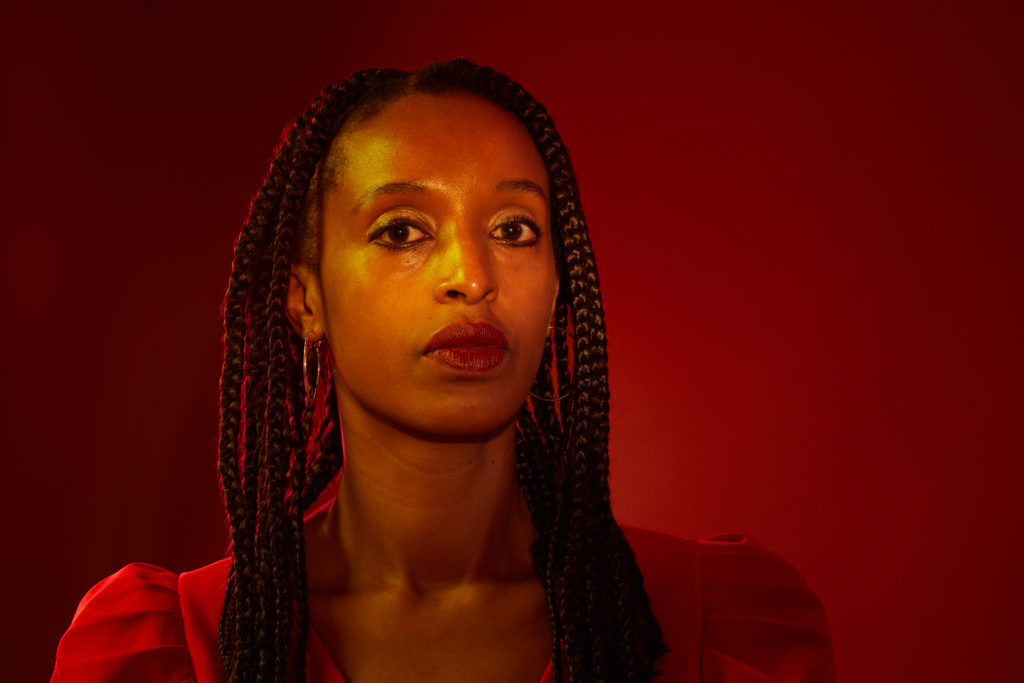Several York alumni, including Mumbi Tindyebwa Otu (BA ’10), contributed to 21 Black Futures, an Obsidian Theatre production airing this month on CBC.

When Mumbi Tindyebwa Otu (BA ’10) was hired in January 2020 to take the helm of Toronto’s Obsidian Theatre as its new artistic director, she had no idea how much the world would change by the time she started the job in July.
Not only was the COVID-19 pandemic sweeping the globe, but an international outcry against anti-Black racism was at the forefront of both cultural and political discussions.
“Between January and July, everything changed,” says Tindyebwa Otu. “Everyone moved into isolation, and I was home like everyone else, grieving with my community about what we were seeing and the murder of Black people at the hands of police, and I really started to think about Black futures as a way to heal, as a way to imagine beyond that moment that we were in. The concept of ‘What does the future hold for us?’ was one that came from the intensity of everything that we were experiencing. I felt an urgent need to respond to the moment we’re in and to create an opportunity for Black artists to respond.”
The result is Tindyebwa Otu’s first project with the theatre, and it is an ambitious one: to tell the stories of 21 Black playwrights answering the question “what is the future of Blackness?” The project’s main goal is to amplify Black voices and put them at the forefront of the conversation, and each writer was asked to write a 10-minute monodrama, featuring one character and telling a complete story.
Coinciding with Obsidian’s 21st anniversary, 21 Black Futures is the anthology of those 21 filmed monodramas, commissioned from 21 multigenerational Black playwrights across the country, directed by 21 Black directors and performed by 21 Black actors.
“I was really interested in what Black writers and thinkers had to say about the future, and what stories they would be able to imagine, so it started with the writers and thinking about 21 different points of view. And we also wanted to capture as much of the diversity of the Black community and experience across the country as we could.”
At least 10 of the 63 participants are York alumni, including Tindyebwa Otu, who arrived at York knowing she wanted to study directing. There wasn’t a specific directing program, but there were independent study programs that allowed her to work as an assistant director and learn from professional directors in the industry.
“That was really, really incredible because I got a chance to learn while I was getting credits,” she says. “I had a lot of flexibility and fluidity in designing my experience. I really appreciated that I was embraced and that I was able to take courses that were specific to my interests and helped me in the path of directing.”
Filming 21 Black Futures during a pandemic presented a host of challenges, especially for the directors tasked with executing the productions amid strict COVID-19 protocols.
“We were trying to figure out exactly how we were going to be doing this, and that was shifting the whole time because things were changing. We had a venue partner, Meridian Hall, that provided the venue where we would be filming, so we decided to create a physical set that would be malleable for all 21 pieces. We could add props and change the costuming, but we were working within one set.”
Because of the tight timelines for the project, as soon as a piece was shot, it went right into post-production. Tindyebwa Otu was able to watch the filming from her home via live stream, but says seeing a cut for the first time was a special moment.
“We were seeing them as we were still filming, and that was really incredible,” says Tindyebwa Otu. “I think when I saw the first piece I almost cried. It was like day four, it was really intense, and we were still working out a lot of details about the filming, so to just see even a rough cut of the very first shoot was really affirming. The hybrid was working, and it felt like we were making something special. I think it’ll be maybe six months from now that I’ll really take it in, because the process has been so quick, but it’s really, truly incredible how different artists have responded to the challenge of doing this.”
Tindyebwa Otu says she hopes viewers who watch the series will think not only about increased representation, but about the multi-faceted nature of what that representation looks like.
“I hope that there’s continued appreciation of the richness and diversity of the Black experience,” she says, “that we are not a monolith, that there are many, many voices, and many different ways that Black people move in the world.”
The third and final installment of 21 Black Futures will be released Friday, Feb. 26. All episodes are available on CBC Gem.
About Obsidian Theatre
Obsidian is Canada’s leading culturally specific theatre company. Its threefold mission is to produce plays, to develop playwrights and to train emerging theatre professionals. Obsidian is passionately dedicated to the exploration, development, and production of the Black voice. Obsidian produces plays from a world-wide canon focusing primarily, but not exclusively, on the works of highly acclaimed Black playwrights. Obsidian provides artistic support, promoting the development of work by Black theatre makers and offering training opportunities through mentoring and apprenticeship programs for emerging Black artists.
